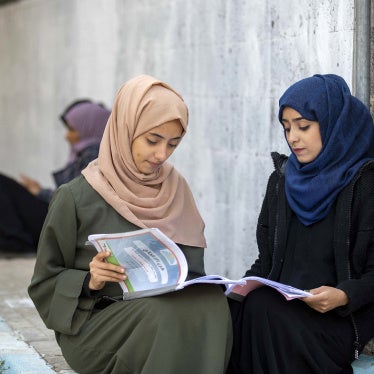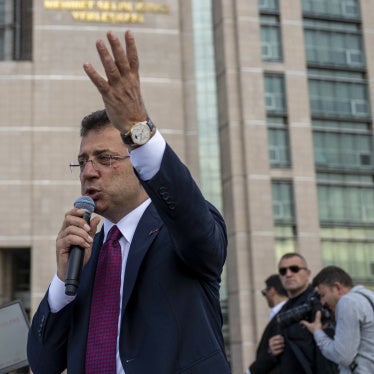Dubai sees and markets itself as a tolerant cosmopolitan city where east meets west: where occidental comforts and luxury sit cosily and apparently easily with the Arab-Islamic culture. As many visitors to the UAE notice (and have mentioned to me), alcohol is readily available in hotels and restaurants. Unmarried couples often openly share hotel rooms, and visitors to the UAE say they are rarely, if ever, troubled by the authorities over either issue.
But, recent events in Dubai suggest that this meeting place may not be quite as comfortable or cosy as one may think. On New Year's Eve, a young British woman of Pakistani descent was allegedly raped by a hotel worker at an upmarket hotel in Dubai Marina. She had been celebrating her engagement with her 44-year-old British boyfriend during a three-day romantic getaway to the city. But, based on news reports, their pleasant weekend apparently turned into a nightmare. She reported to the police that a hotel employee followed her into a restroom and raped her.
A woman should be able to report a rape to the police anywhere in the world and to expect them to investigate the charge. In some parts of the world that will actually happen, even though police officials are not always as sensitive or responsive as they should be. But for those of us who live in the Middle East, it is really not that clear what we should do if we're sexually assaulted, abused, or raped. That is because in so many instances, officials either don't take us seriously, or - as this case frighteningly illustrates - we may even be charged with a crime ourselves.
It became clear in this case that the Dubai authorities were not really interested in whether the young woman had been harmed. The authorities at the Jebel Ali police station in Dubai seemed to be much more intrigued about this young woman's alcohol consumption and her sex life, news reports indicate. Instead of seriously investigating the rape, which carries a harsh sentence under local law, the police charged the woman and her fiancé with drinking alcohol and having illegal sex.
They spent a night in jail and were then released on bail. Their passports have been confiscated as they await trial, and if convicted, they may face up to six years in prison. Police officials contend that the woman "fabricated" her story though they have provided no information to back up their conclusion, and despite the fact that the criminal investigation is apparently not yet complete. The hotel employee, who admitted he had sex with the woman but denies it was rape, has been charged with illegal sex, rather than rape.
This woman's experience is unfortunately not limited to tourists in Dubai. It is an example of how authorities, especially in this region, ignore violence against women every day and turn investigations of crimes against women into "moral" judgment calls. The real problem is the much broader and more basic one of how societies in the Middle East view women and attempt to control them, placing restrictions on how they should dress, speak, and act in public. Women are seen as custodians of family "honour" and are coerced into marriage. Even the most open societies in the region continue to fail women by not fully respecting their human rights.
Women in the Middle East face discriminatory legal provisions in personal status laws, which govern almost every aspect of their lives, including marriage, divorce, custody and guardianship, and inheritance. Discriminatory provisions in penal codes either exempt or hand down mitigated sentences to male family members who murder their female relatives. Women are also reluctant to report domestic abuse, rape, or other forms of gender-based violence to authorities because of the difficulties they face in seeking redress.
A few weeks ago, a young woman was allegedly raped in a restroom. The fact that she was treated like a criminal when she went to the police and that women in the Middle East are scared to report such crimes is the real moral outrage.








